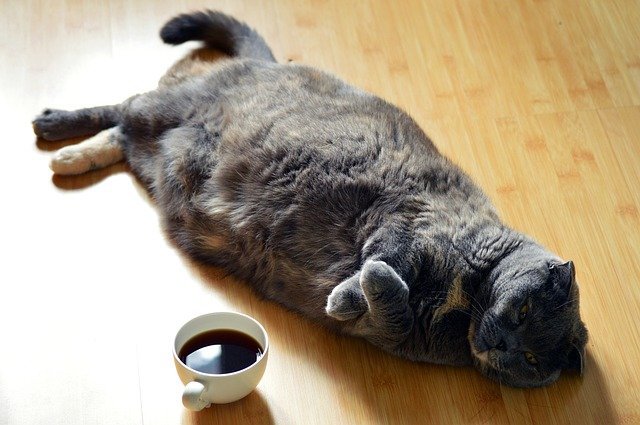
Is My Pet Obese?
Fat cats and big dogs might be fun internet memes, but overweight animals are no laughing matter.
Why Pets Put on Weight
Cats and dogs that are fed too much, don’t exercise, or have a slower metabolism are at risk for obesity. Hypothyroidism is a hormonal disease that can also predispose a dog to obesity.
What’s So Bad About Obese Animals?
Obesity is a disease in pets defined as an excess of body fat. Obesity leads to other health problems such as diabetes, bone/joint disease and breathing problems. Many of these conditions in turn, cause a decreased lifespan.
How to Diagnose Obesity
Animals, just like people, come in all shapes and sizes. Veterinarians diagnose obesity by scoring the pet’s body condition on a scale of 10. Animals with low number values, from 0 to 4, are underweight. The higher numbers, from 8 to 10, indicate an animal that is obese. This BCS (or Body Condition Score) is determined by your veterinarian at the time of an exam. Hypothyroidism can be ruled out with blood tests.
How to Treat Obese Pets
Treatment involves diet changes and exercise. Diets rich in fiber and protein, but low in fat, can help reduce obesity.
An excellent example of how a diet helped to combat obesity was exemplified in the case of two of our patients, brother and sister dogs named Luke and Leia. Luke weighed 95 lbs. and Leia weighed 60.6 lbs. With the assistance of our Purina food representative Julia, we developed a weight loss program involving both Purina O/M, a low fat diet, and exercise. Over the course of several months, the owners closely followed a feeding protocol and Luke and Leia were weighed monthly. Ultimately it was no easy feat for our conscientious clients, but as a result, Luke now weighs 43.5 and Leia 36.9!
If you feel your pet could benefit from a weight loss program, contact us to schedule an appointment today.
Essex Middle River Veterinary Center provides medical and surgical care for cats and dogs at our animal hospital and veterinary clinic in Essex, Maryland, just outside of Baltimore. Our services include preventive wellness care exams, vaccines, spays/neuters, and a variety of specialized care. Our state-of-the-art veterinary offices are conveniently located near I-695 where we see pets from Towson, Honeygo, White Marsh, and other neighboring Baltimore areas.
